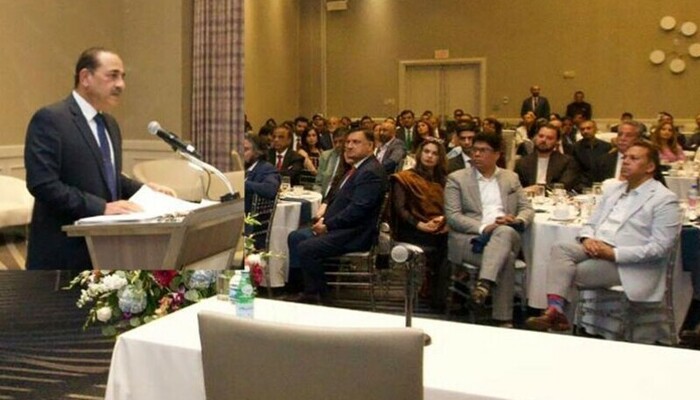
Pakistan’s Foreign Office (FO) has strongly condemned India’s Ministry of External Affairs (MEA) for twisting and misrepresenting remarks made by Chief of Army Staff (COAS) Field Marshal Asim Munir during his recent US visit. The FO accused India of using false narratives to stoke India-Pakistan tensions, calling New Delhi’s stance “immature” and “misleading.”
Visit to the United States
Field Marshal Asim Munir completed his second high-profile trip to the United States in less than two months. He engaged with American political and military leaders, attended the US Central Command’s (Centcom) change of command ceremony in Tampa, Florida, and participated in a black-tie dinner hosted by Pakistan’s honorary consul Adnan Asad.
The event drew 150 attendees, including Interior Minister Mohsin Naqvi, Ambassador Rizwan Shaikh, embassy officials, and members of the Pakistani diaspora. It was here that remarks attributed to the COAS caught the attention of Indian media outlets.
India’s Reaction
India’s MEA responded by accusing Pakistan of “nuclear sabre-rattling” and claimed such comments revealed “doubts about the integrity of Pakistan’s nuclear command and control.” The MEA called the remarks “regrettable” and criticized the fact that they were allegedly made “from the soil of a friendly third country.”
New Delhi argued that Pakistan’s military worked “hand-in-glove with terrorist groups” and suggested the statements reflected an irresponsible nuclear policy.
Read: Mudslide in Gilgit-Baltistan Kills 7 Volunteers Repairing Damage
Pakistan’s Strong Response
The FO dismissed India’s claims as factually incorrect and politically motivated. It stressed that Pakistan had no record of threatening nuclear use and instead remained committed to peace.
“Pakistan rejects the immature remarks made by the Indian MEA,” the FO stated. “The Indian narrative of an alleged ‘nuclear blackmail’ is a misleading construct. Pakistan has always opposed the use or threat of use of force.”
The FO emphasized that Pakistan is a responsible nuclear-weapon state, with full civilian oversight of its command and control system. It highlighted Pakistan’s discipline and restraint in matters of strategic security.
Counterterrorism and Security
Pakistan’s counterterrorism record, according to the FO, is recognized internationally. It said the country’s security forces continue to act as a bulwark against terrorism and dismissed India’s “spurious insinuations” as baseless.
The FO criticized India for dragging third countries into bilateral disputes, describing it as a sign of “diplomatic insecurity” and a “futile attempt” to exert pressure.
Warning Against Aggression
The FO warned that any Indian aggression or violation of Pakistan’s sovereignty would trigger an immediate and proportional response. “The responsibility for any escalation will rest squarely on India’s leadership,” it declared.
Recent Military Escalation
Relations between the two countries have been tense since April 22, when India blamed Pakistan for the Pahalgam attack without evidence. On May 6–7, India launched air strikes that killed civilians. In response, Pakistan Air Force downed six Indian fighter jets. Both sides carried out retaliatory strikes on each other’s airbases.
It was only after US intervention on May 10 that the two sides agreed to a ceasefire.
Trump’s Role and Fallout
US President Donald Trump publicly claimed credit for brokering the May 10 ceasefire, stating it was the result of his intervention and trade threats. India has disputed this version.
Despite past public displays of friendship between Trump and Indian Prime Minister Narendra Modi, the relationship has cooled. India has expressed displeasure over Trump’s perceived closeness to Islamabad, further complicating ongoing trade talks.
Trade Tensions Rise
Trump recently imposed an additional 25% tariff on Indian goods, citing India’s continued import of Russian oil. This move, coming after stalled trade negotiations, will push some duties as high as 50%, among the steepest for any US trading partner.
Indian officials are now scrambling to consult “stakeholders” — a reference to domestic business groups frustrated by the trade standoff. Modi’s earlier strategy of balancing ties with both Washington and Moscow appears to have reached a dead end.
Follow us on Instagram, YouTube, Facebook,, X and TikTok for latest updates
